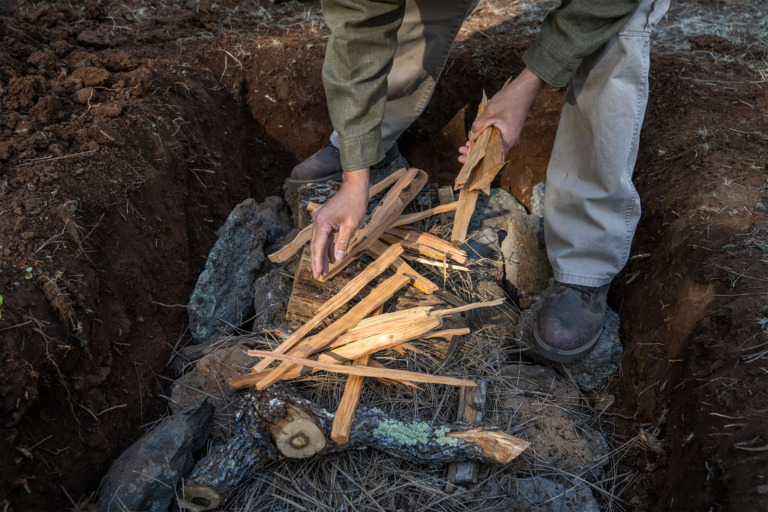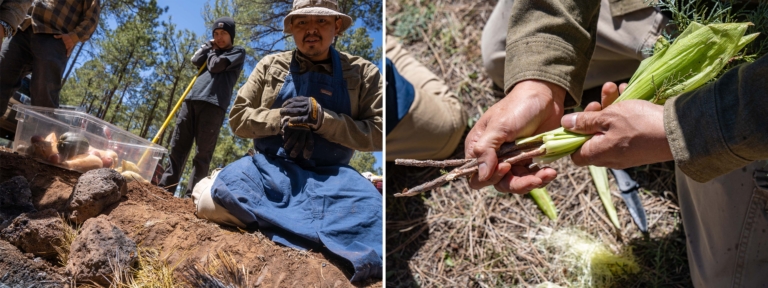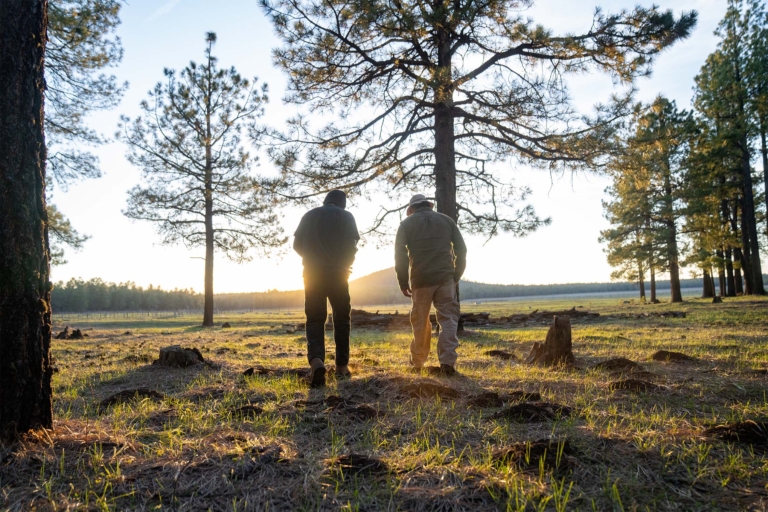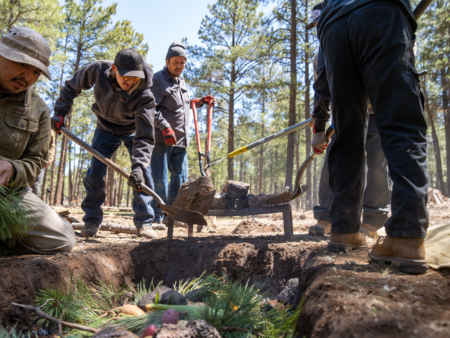Sons of Sacred Mountains
All photos by Tomás Karmelo Amaya
Dó religion a’ted’da—It’s our way of life.
Life in Western Apacheria is as rugged as it is beautiful. This vast landscape in Arizona ranges from near Flagstaff, across the Mogollon Rim, throughout the Sonoran Desert, into the Salt River Canyon and up to our mountains on the White Mountain Apache Nation where Mount Baldy, our sacred mountain, reaches over 11,000 feet. Through diligence, commitment, passion and consistency, our people have upheld our lifeways and inhabited these regions a thousand years longer than America has been a country.
Since time immemorial, our people have maintained an intimate relationship with our landscape, which forges our identity and shapes our destiny. The Western Apache group consists of the Yavapai-Apache Nation, the Tonto Apache Tribe, the San Carlos Apache Tribe and the group I was born into, the White Mountain Apache Tribe. We have never been displaced. Despite genocide, attempts at assimilation and centuries of warfare with the United States military, colonial settlers, Spain and Mexico, we remain in our ancestral landscape.
Although we are recognized around the world as powerful resistance fighters with a history of raiding, warfare and conflict, we are still connected to our territory largely because of our humble respect and love for our land. This life-sustaining relationship with our waters, ecology, seasons, flora and fauna continues to create profound Traditional Ecological Knowledge (TEK) in our regional Indigenous foodways. From art, song, ceremony, clan kinships, textiles, medicine, language and daily nourishment, our Indigenous foodways are at the core of our identity. Food is the nucleus of our culture. As a professional cook with 23 years of experience in many types of kitchens around the world, I consider our Apache pit cooking method the most difficult and satisfying.

Juniper and oak wood are the preferred fuels for White Mountain Apache pit cooks. Lining the pit with lava rocks helps them achieve the desired 800-degree cooking temperature.
We often gather to cook for large amounts of people, which is usually for a ceremony. During the spring and summer, we carry on the tradition of working together as fathers, cousins, brothers and friends in preparation for these gatherings. Our favorite methods of cooking—cooking in the earth or roasting in a pit—connect us to thousands of years of culinary tradition. This requires us to plan the menu, cut our own specific firewood, dig a pit and gather lava rocks to help heat the pit beyond 800 degrees.
On an early morning in April 2021, after months of planning and discussion, I joined my son, brothers, nephews and friends to do a pit cook as part of a celebration of brotherhood, fatherhood and community during a pandemic. We share a commitment to each other, especially in times of need. Each of us was raised with White Mountain Apache or Navajo fathers who are also hunters, mountain men, US Marines, state champion wrestlers, police officers, poets, musicians and artists. They shared with us their love for cooking outdoors in the ground with family after long days of hard work.

The ingredients used in the pit cook are determined by the reason for the ceremony.
First, we identified the occasion and reason for cooking in the ground, which determined our selection of ingredients. We decided to cook hard squash, sweet potatoes, onions, red potatoes, corn and agave stalks. We’d dug a pit the day before and lined it with lava rocks. In our White Mountain Apache landscape, we cook with juniper and oak wood, which we scout, cut and haul ourselves. For this task, we looked to my nephews Thomas and Sean—thoroughbred Apache men through and through. I have relied on and deeply trust their expertise as fluent Apache language speakers, woodsmen, carpenters, mechanics, artists and hunters. My nephews were raised by their mother and father to know all of the Apache skills needed to thrive in a way that is intelligent, ancient and highly contemporary in the most innovative way. When asked to help go get some wood, they already knew exactly where to look and cut.

Left: “Wisdom sits in places.” —Nephi Craig
Middle: The hard work to prepare for the ceremony has always been part of the ceremony. The author’s brother Lyle Ironwater puts his back into it.
Right: “Participate in your own evolution.” —Nephi Craig
We drove two pickup trucks and a trailer up to a place called Seven Mile Hill. Once Thomas and Sean had scouted the lumber, we parked and got right to work. Over laughter and jokes, Thomas and Sean wielded their chainsaws with efficiency and speed; they are young masters at this vital craft. In a matter of about two hours, we had cut, chopped and stacked the wood and loaded our vehicles to capacity just as storm clouds began to roll in. Other than chainsaws, no machinery is used to erect these Apache structures for camp or ceremony. Pickaxes, 20-pound steel digging bars, post hole diggers, fencing pliers, fencing wires and 200-pound posts are our best friends when we’re erecting structures for shade, food storage, fence lines and living quarters.

Left: Lyle Ironwater and brothers Sean and Thomas Francis load the wood with storm clouds rolling in.
Middle: The author passing along tradition, from the ground up.
Right: The author and his mother Mariddie J. Craig.
As a child, I watched my father barbecue whole sides of Apache beef in the ground, along with huge gunny sacks of corn, which were left to cook overnight. I watched in awe as the preparation fire roared and blazed, heating the ancient magma rocks. So, when we get the opportunity to activate these lessons in large or small ways, we always take pride and celebrate together.
Together, we enjoy the brotherhood, competition and displays of strength, and at the core of it all, I feel that we all deeply understand that this is when we feel the most Native, or when we feel the most alive with a deep sense of purpose that is connected to a legacy of Indigeneity rooted in our generation’s cultural resurgence. The cornerstone of this cultural resurgence is the practice and preservation of our Indigenous foodways.
Our cultural value system has always been based on people, land and waters, each of which require us to display diligence, commitment, passion and consistency. We recognize quality in food, art, gear, tools and character. We carry on the traditions of our ancestors in this calorie-rich landscape, while remembering the lessons of our fathers as we learn to recognize that we are all sons of sacred mountains.

In Western Apacheria, landscape is destiny.
